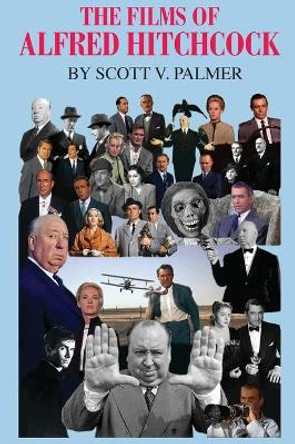Description
This book is neither biography nor a conventional film critique. Rather, the text explores aspects of Hitchcock's work in relation to theories drawn from the social sciences and philosophy. The various chapters focus not on specific films, but on broader ideas central to Hitchcock's work. There is, for instance, a chapter on his idea of the MacGuffin in which I use Ernesto Laclau's theories of equivalent substitution to explain how the MacGuffin functions in Hitchcock's works. There is also a chapter on his notion of 'pure cinema' which moves from the idea of purity as an anthropological concept to consider purity in relation to current debates regarding so-called hybrid media, and Hitchcock's relevance to these issues in respect of his dissatisfaction with the advent of sound to the cinema world. Broadly speaking, the book uses Hitchcock's films to illustrate ideas in the social sciences and philosophy and uses those same ideas to illustrate aspects of Hitchcock's films.
Alfred Hitchcock continues to be an important figure in the history of cinema. This book raises several issues in film studies pertaining to aspects of Hitchcock's work that are closely related to theories drawn from the social sciences and philosophy.
About the Author
Gary McCarron is an associate professor in the School of Communication at Simon Fraser University. He is also the Graduate Chair of Simon Fraser University's program for Graduate Liberal Studies.
Reviews
A seminal and ground-breaking work of original scholarship, "Cultural Theory in the Films of Alfred Hitchcock" by Professor Gary McCarron will hold a very special appeal to readers with an interest in film criticism in general, and an analysis of Alfred Hitchcock's cinematic philosophy in particular. Exceptional, informative, thought-provoking, and unique, "Cultural Theory in the Films of Alfred Hitchcock" is especially and unreservedly recommended for personal, professional, community, film school, and college/university library Cinematic Studies collections and supplemental curriculum studies lists. -- Midwest
"Gary McCarron uses an impressively broad range of theoretical frameworks to tease out hitherto-overlooked meanings, implications, and ramifications of selected Hitchcock movies. These complementary essays add up to a prismatic account of Hitchcock's work and a stimulating excursion into varied philosophical and sociological territory." - David Sterritt, Editor-in-Chief, Quarterly Review of Film and Video
"Our thirst for watching and thinking about the films of Alfred Hitchcock is unquenchable. Here, both cogently echoing many arguments and stretching into challenging and exciting new territory, Gary McCarron positions Hitchcock's analytical vision, refreshing the films for currency, even urgency, and offering a table of Hitchcockian delights." - Murray Pomerance, Independent Scholar and Adjunct Professor, Dept. of Media and Communication, RMIT University, Melbourne
"An insightful investigation of Hitchcock's films, from his silent cinema to his later work. From The Lodger and Blackmail to The Wrong Man and The Birds, McCarron uses communication studies, psychoanalysis, and philosophy as critical entry points into studying Hitchcock's motifs and methods." - Blair Davis, Professor, College of Communication, DePaul University, Chicago
"An engaging, exploratory book. The author is especially adept at pursuing ideas, whether those of Hitchcock or his films or of critics and philosophers, that are contradictory or partial and also rich in possibilities for further thought. Is suspicion a method or an affliction? Or something else?" - Michael Wood, Princeton University
Book Information
ISBN 9781839988462
Author Gary McCarron
Format Hardback
Page Count 240
Imprint Anthem Press
Publisher Anthem Press
Weight(grams) 454g
Dimensions(mm) 229mm * 153mm * 26mm












